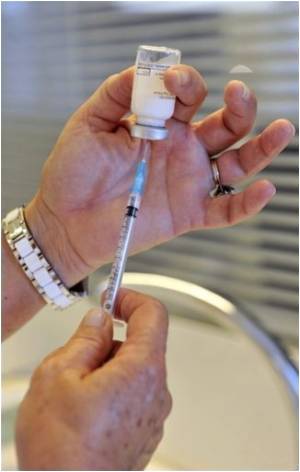
If a cancer tumour is to become larger than a few millimetres it must be able to stimulate the formation of new blood vessels, in order to secure the supply of oxygen and nutrients. Drugs that prevent the growth of blood vessels are thus a potential treatment alternative for tumours.
A protein known as Delta-like ligand 4 (DLL4) has recently been identified as an important component in regulating the formation of new blood vessels. When a new blood vessel starts to grow from an existing vessel, DLL4 is expressed in the tip cells at the end of the new vessel sprout, and prevents neighbouring cells from forming new vessels. If the expression of DLL4 is blocked in a tumour, there is a large increase in the formation of new, but non-functional, blood vessels, and this leads to the tumour growing more slowly.
A research group at Karolinska Institutet has developed the DNA-vaccine against DLL4 and the blood vessel tip cells. They have shown that vaccination against DLL4 causes an immunological antibody response to DLL4, and this hinders the growth of breast cancer in mice. Tumours from vaccinated mice had a tightly packed network of non-functional blood vessels, and poor blood supply. The vaccination did not cause any undesired effects and did not affect the animal s capacity for wound healing.
"We have worked with breast cancer tumours since they often express high levels of DLL4, while normal breast tissue does not. We hope that it will be possible to use this vaccine to prevent recurrence of breast cancer after surgical treatment", says Kristian Pietras, who has led the study.
DNA-vaccination is a new method of vaccination against both cancer and infectious diseases. DNA-vaccination involves the injection of a fragment of DNA that contains the gene for the protein against which it is desired to vaccinate. Cells in the body temporarily absorb the vaccine DNA, and start to produce the protein, and this leads to the immune system learning to recognise it.
Advertisement
RAS









